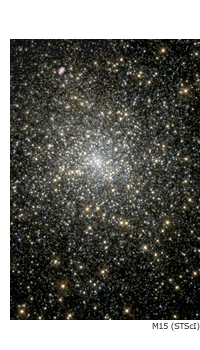 Materials and Coursework
Materials and Coursework
As of the present time, there is no formal textbook for this course. Instructor's notes,
outline-format slides, and links to useful sites will be posted on the course website.
Course grades will be based mainly on in-class, multiple-choice (or mostly so) hour
exams. I do not give make-up exams for specific missed exams, but there will be an
opportunity late in the semester to take an additional comprehensive exam that can
replace an exam that you missed or received a lower grade on. (This comprehensive
exam might be given during the official final exam time slot, so plan your schedule
accordingly!) The remainder of the course grade (20 or 25%, to be determined) will
come from "participation credits" that you earn in class through short individual and
group exercises, or outside of class by attending special astronomy lectures or events
or by researching articles related to the course material.
Grading Basis
Course grades will be awarded on a point system. There are no quotas on "A's" or "B's;"
your course grade will be based on your work alone. Throughout the semester, you
will be able to look up your scores on exams and participation activities on UT's
eGradebook site. About halfway through the semester we will give you an indication
of what your projected course grade would be if you continued to do about the same
on the exams and assignments as during the first half of the semester, so that you
can adjust your study routines if necessary.
Getting Help
In addition to the materials posted on the course website, the instructor and teaching
assistant will be available for office hours several times each week or by appointment.
In addition, some of the in-class activities are specifically designed to enable you to
ask questions about the material. Review/help sessions will be scheduled before the
exams and as otherwise needed.
Major Topics (I hope to cover them all!)
- Review of basic principles (that you learned in your introductory course)
- The Sun and how it makes its energy (and how we know about this)
- A universe of stars and planets
- Stars from brown dwarfs to "superstars"
- Planets around other stars
- Life histories and death throes of stars
- How the stars make the elements inside and around us
- Relativity: extreme reality
- What happens near the speed of light
- What happens near very dense objects (regions of strong gravity)
- Testing the theory of relativity with astronomical observations
- The concept of black holes
- Extreme stars
- Neutron stars, pulsars, and magnetars
- Black holes and how we tell that they are there
- Gamma-ray bursts and other mysteries
|

 Materials and Coursework
Materials and Coursework